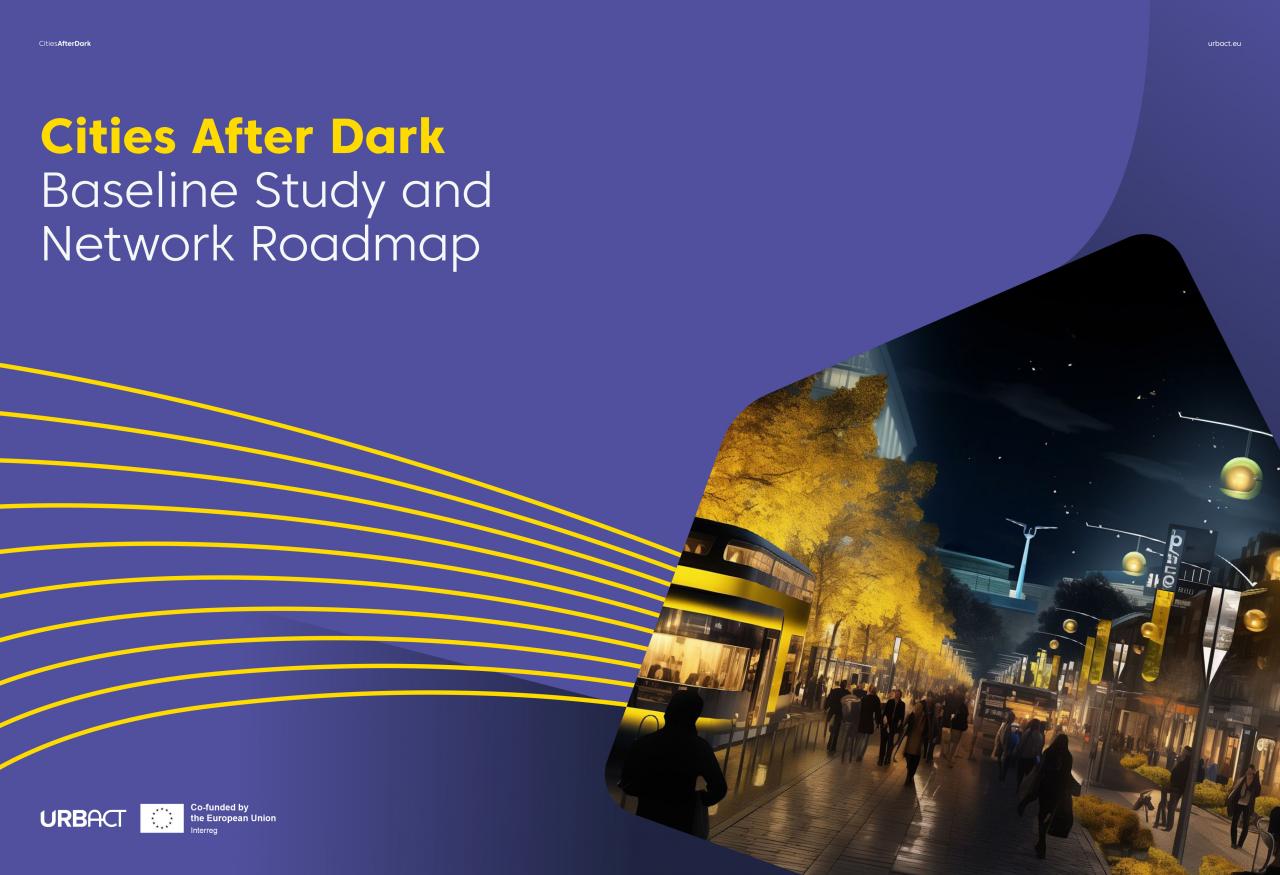Night-time economy is a growing field in urban policies at European and global level, increasingly recognized as an important element for the sustainable growth of cities.
Between 6 pm and 6 am a wide range of activities take place in cities. The night-time economy includes sectors like culture and leisure, dining, retail, transport, hospitality and nightlife. In addition to them, other sectors such as goods logistics, health and social care, waste management and environmental protection are also part of the night-time economy since they operate around the clock, or support the other sectors of the night-time economy mentioned above.
The Baselinestudy is divided in three main sections:
- The State of the Art
Night-time economy and the respective governance, the main challenges and EU policies and projects as well the European and global good practices on Night-time economy.
- Partner profiles
A presentation of all 10 network cities and partners, in particular in relation to the local policy challenge, existing policies/ action plans, and the possible focus of the URBACT Integrated Action Plan to be developed. The partners of Cities After Dark are highly diverse in terms of their size, challenges and ambitions for change on nighttime economy. The network is composed of three capital cities (Paris, Tallinn and Nicosia) with structured systems of governance of night-time economy in the case of Paris and Tallinn, medium-sized cities (Braga, Genoa, Malaga, Piraeus) which aim to improve the quality of the night-time economy as a factor of city attractiveness and safety, and cities (Budva, Varna, Zadar) with a night-life mostly linked to seasonal tourism flows but willing to work on creating new opportunities throughout the year.
- Synthesis, methodology and network roadmap
The main challenges of the night-time economy identified by the cities are linked to the main strands of the European and global debate on the topic. The composition of the URBACT Local Groups of the partners reflect their objectives in terms of civic engagement and thematic scope of the network activities


